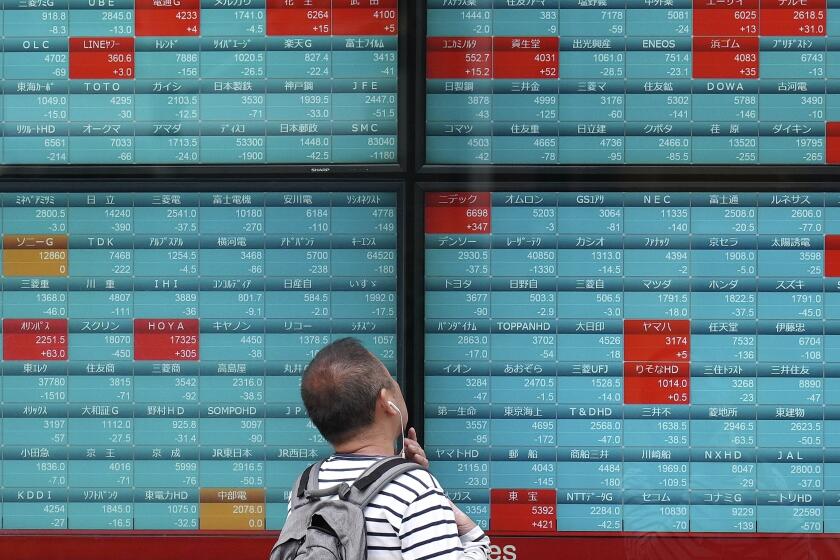Economists Predict State Slowdown
A slowdown in the California economy will begin late this year and continue for the next two years as a cooling housing market leads to job losses in construction and related industries, according to the latest UCLA Anderson Forecast, to be released today.
But there is no evidence that a recession is near, the widely watched quarterly forecast said.
“We see the housing crunch as a force that will slow growth, not stop it,” said Christopher Thornberg, senior economist and author of UCLA’s state forecast.
UCLA economists for years have been at the forefront of analysts saying that the California and national economies would suffer when the housing boom finally cools. But timing the slowdown has been difficult.
Now, the trend is becoming clear: The housing boom that has driven the state economy has peaked and is starting to soften, Thornberg said.
“The only debate now is how hard a landing there will be and what will it mean for the general economy,” said Thornberg, among the first economists to call the state’s current housing boom a bubble.
Over the last two years, construction jobs have made up nearly a fourth of all new payroll jobs in the state -- “far above any normal level,” Thornberg said. But a slowing housing market will start to stunt such job creation this year and push down payroll employment growth to 1.5% this year and 1% next year from 1.8% in 2005, the UCLA forecast said.
As many as 200,000 jobs in construction and related fields will be lost in the state, including contractions in real estate sales and mortgage banking positions, the report said. What’s more, reduced home appreciation will slow growth in the state’s tax revenue.
Yet the parts of the economy that aren’t driven by housing are starting to improve, UCLA forecasters said. Jobs in professional services are growing. Although the manufacturing sector isn’t adding many jobs, output continues to rise. Still, job creation in other sectors is not strong enough to fully offset declines in housing-related industries, the report said.
Although UCLA forecasters have consistently been more pessimistic about the housing boom and California’s economy than many other analysts, their views are notable because they were among the first economists to predict the 2001 recession.
As early as 2002, the UCLA team noted that speculative real estate buying was pushing up prices at rates faster than personal incomes. Since then, the median California home price has nearly doubled to $457,000 as of February.
“There is no justification for the prices we’re seeing now,” Thornberg said.
He predicts that annual home-price appreciation will slow to 6% by the end of this year and will flatten in 2007.
He also sees a 27% decline in home sales this year and next, from 530,000 to 390,000. Likewise, fewer new homes will be built, shifting to an annual rate of about 150,000 units in 2008 from a 200,000-unit pace.
Still, barring any shocks to the economy -- such as rapid inflation or surging oil prices -- the prospect for a recession is slim, he said. But weaker economic expansion is likely.
Other watchers of the state’s economy aren’t so pessimistic about the state’s outlook and the effect of a housing slowdown.
In another forecast to be released today, Sean Snaith of the business forecasting center at the University of the Pacific in Stockton sees the state’s economy slowing but not until next year as the housing market cools and construction employment shrinks.
But he sees job growth in other sectors helping to pick up the slack and no real estate collapse. He forecast growth in payroll employment at 1.7 % in 2006, slowing to 1.3% by 2008.
“We’ve argued against a housing bubble,” Snaith said. “We see it more as a souffle that will go flat.”






